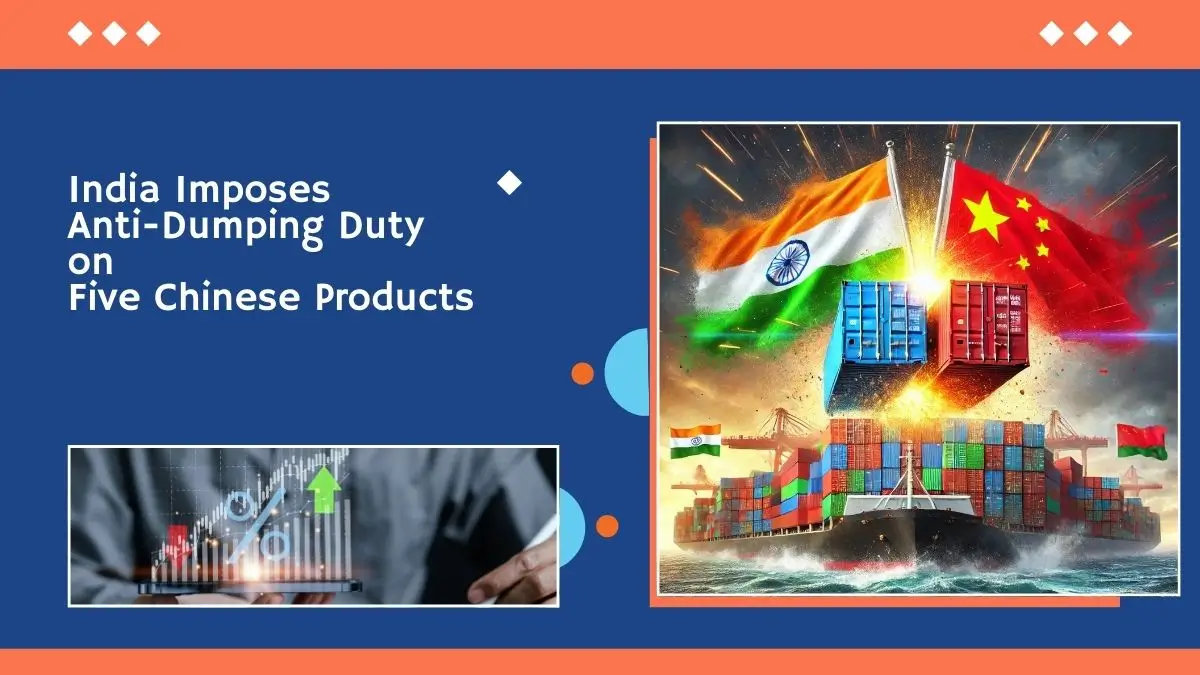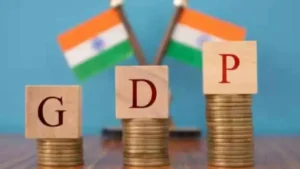To protect domestic industries from unfairly priced imports, India has imposed anti-dumping duties on five Chinese products: Soft Ferrite Cores, vacuum insulated flasks, aluminium foil, Trichloro Isocyanuric Acid, and Poly Vinyl Chloride (PVC) Paste Resin. These products were being exported from China at prices lower than their normal market value, causing harm to domestic manufacturers. The duties were recommended by the Directorate General of Trade Remedies (DGTR) under the Ministry of Commerce and will be imposed for up to five years to ensure fair trade practices.
Key Points of the Anti-Dumping Duty
Products Covered
- Soft Ferrite Cores (used in EVs, chargers, telecom devices)
- Vacuum insulated flasks
- Aluminium foil
- Trichloro Isocyanuric Acid (water treatment chemical)
- Poly Vinyl Chloride (PVC) Paste Resin
Duties Imposed
- Soft Ferrite Cores: Up to 35% duty on CIF value
- Vacuum insulated flask: $1,732 per tonne
- Aluminium foil: Up to $873 per tonne (provisional for six months)
- Trichloro Isocyanuric Acid: $276 to $986 per tonne (applies to China & Japan)
- PVC Paste Resin: $89 to $707 per tonne (applies to China, Korea RP, Malaysia, Norway, Taiwan, and Thailand)
Duration of Levy
- Five years for Soft Ferrite Cores, vacuum insulated flasks, and Trichloro Isocyanuric Acid
- Six months provisional duty on aluminium foil
Rationale for the Duty
- Protects Indian manufacturers from unfair competition
- Prevents market distortion due to below-cost pricing (dumping)
- Ensures compliance with World Trade Organization (WTO) rules
About Anti-Dumping Duty
- A protectionist tariff imposed by a country when imports are priced below fair market value.
- Dumping occurs when companies export goods at significantly lower prices than in their home market.
- Duty imposed to bridge the price gap between domestic and imported goods.
- Aims to correct market distortions and restore fair competition.
- Administered by the Directorate General of Trade Remedies (DGTR) under the Ministry of Commerce.
- Recommended by the Department of Commerce and levied by the Ministry of Finance.
What is Countervailing Duty (CVD)?
- A tax imposed to counteract foreign government subsidies that make imported goods cheaper.
- Ensures fair competition by nullifying subsidy-related advantages.
- Approved under WTO regulations, similar to anti-dumping duty.
Difference Between Anti-Dumping Duty and Countervailing Duty (CVD)
| Feature | Anti-Dumping Duty | Countervailing Duty (CVD) |
| Purpose | Prevents damage from low-priced imports | Neutralizes impact of foreign government subsidies |
| Trigger | Goods sold below normal market price | Goods made cheaper due to subsidies |
| Calculation | Based on margin of dumping | Based on subsidy value of imported goods |
| WTO Approval | Allowed under fair trade rules | Allowed to ensure fair pricing |
Summary of the News
| Summary/Static | Details |
| Why in the news? | India Imposes Anti-Dumping Duty on Five Chinese Products |
| Products Covered | Soft Ferrite Cores, Vacuum Insulated Flasks, Aluminium Foil, Trichloro Isocyanuric Acid, PVC Paste Resin |
| Duties Imposed | Soft Ferrite Cores: Up to 35% on CIF value, Vacuum Insulated Flask: $1,732/tonne, Aluminium Foil: Up to $873/tonne (provisional for six months), Trichloro Isocyanuric Acid: $276-$986/tonne (China & Japan), PVC Paste Resin: $89-$707/tonne (China, Korea RP, Malaysia, Norway, Taiwan, Thailand) |
| Duration of Levy | Five years (Soft Ferrite Cores, Vacuum Insulated Flasks, Trichloro Isocyanuric Acid), Six months (Aluminium Foil) |
| Rationale for Duty Protects | Indian manufacturers, prevents market distortion, ensures compliance with WTO rules |



 ICRA Projects India’s GDP Growth to Mode...
ICRA Projects India’s GDP Growth to Mode...
 India’s GDP May Hit 8.1% in Q3FY26: SBI ...
India’s GDP May Hit 8.1% in Q3FY26: SBI ...
 Forex Reserves of India Hit Record High ...
Forex Reserves of India Hit Record High ...








